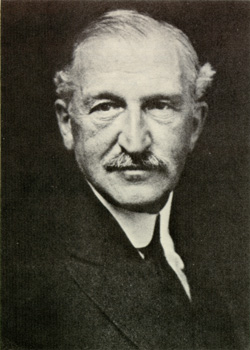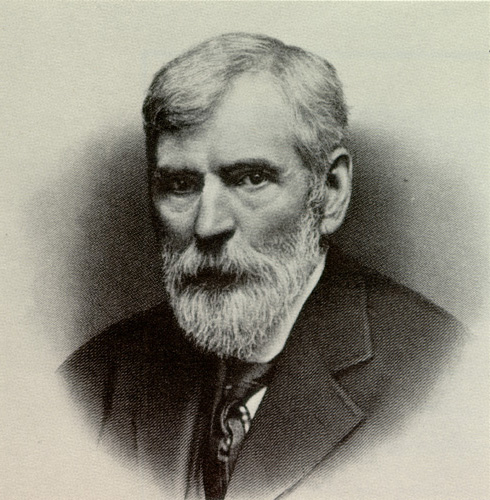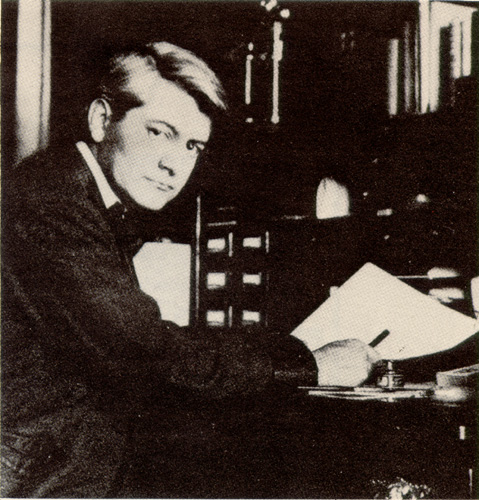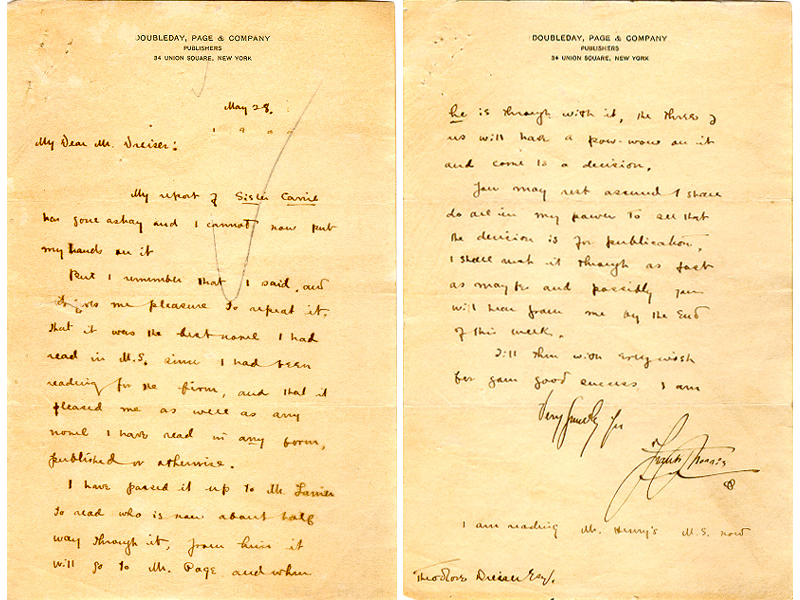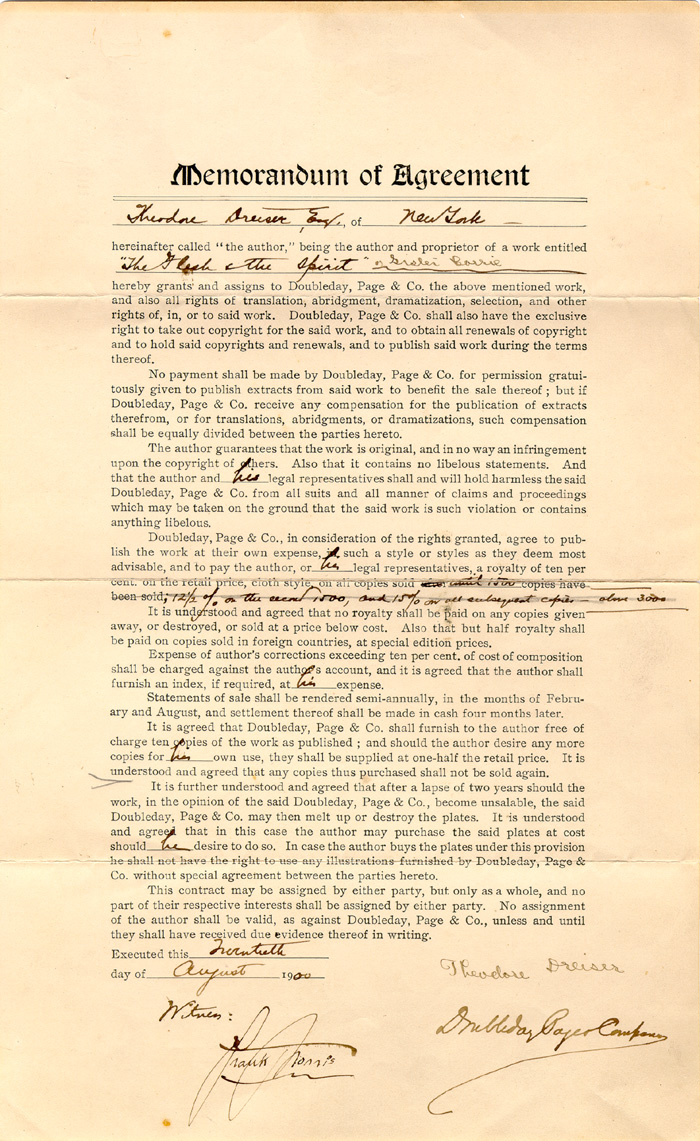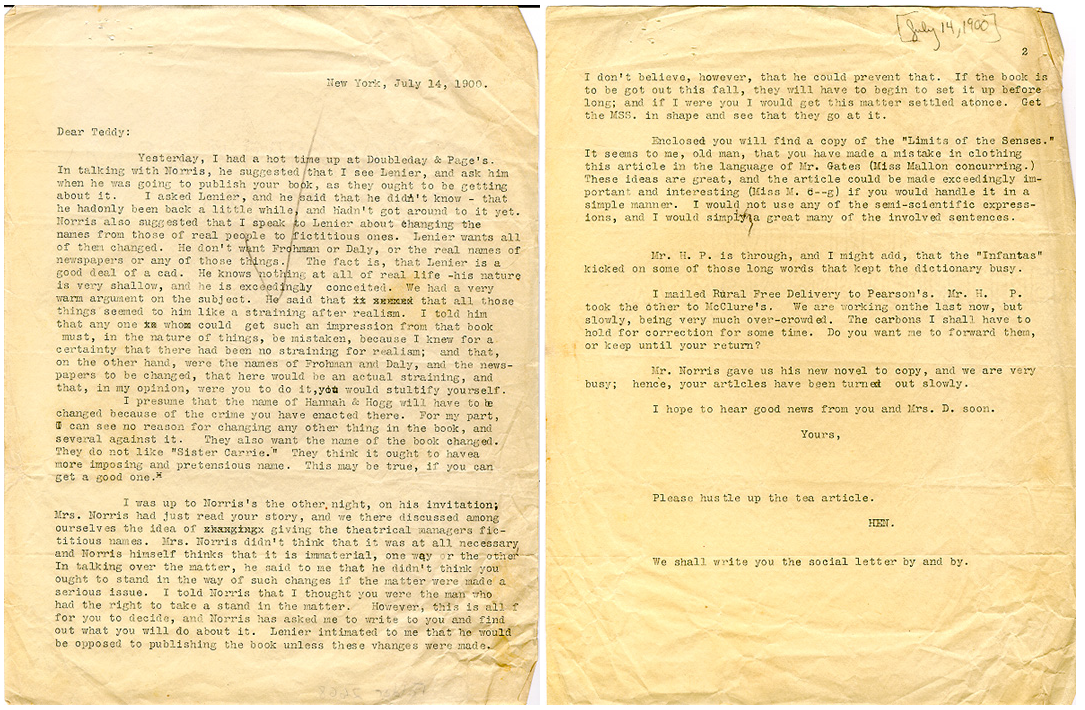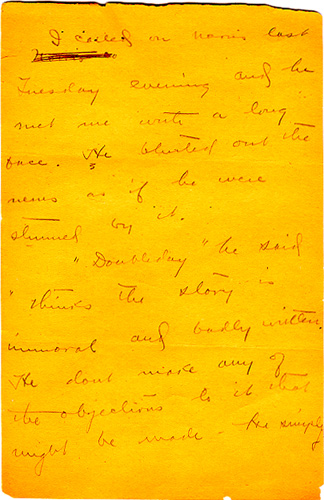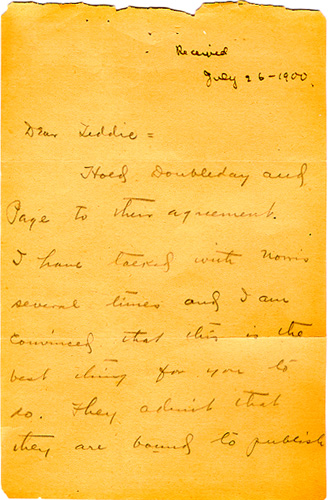In seeking a publisher for his novel, Dreiser first submitted his manuscript to Harper & Brothers, where an influential friend named Henry Mills Alden served on the editorial staff, but it was rejected within a few weeks. The reasons for rejection, however, appear to have prompted a major revision of the text. Some 40,000 words were removed, partly to quicken the pace, partly to do away with references to sex, partly to blunt the force of the naturalistic thinking. Much of the remaining prose was revised, trimmed, and buffed. What emerged was a different novel, less sexually frank and philosophically bleak. This revised typescript was then submitted to Doubleday, Page & Co., because it had published the writings of Frank Norris, a promising young naturalistic writer, whose novel McTeague had recently caused a stir.
Working as an advisor for Doubleday, Norris was the one who read the Sister Carrie typescript in May 1900 and pronounced judgment on it. He was much taken by the narrative, later calling it "the best novel I had read in M.S. since I had been reading for the firm." Acting on Norris's enthusiasm, the junior partner, Walter Hines Page, promised Dreiser that Sister Carrie would appear under the Doubleday imprint. No contract was signed, but a gentlemen's understanding was reached. In July 1900 Frank Doubleday, the senior partner of Doubleday, Page & Co., returned from a vacation and read Sister Carrie in typescript. Doubleday, however, expressed a strong dislike for the narrative, calling it "immoral" and urging that his firm not publish it. Working through Page, he attempted to persuade Dreiser to withdraw the book, but Dreiser (probably with counsel from Arthur Henry) stood firm and demanded publication. After consulting with a lawyer, Doubleday found that indeed he was committed to putting Sister Carrie into print, but that he was under no obligation to market it strongly.
Fig. 1: Doubleday's distaste for Sister Carrienever waned.
Fig. 2: The influential editor at Harper & Brothers, to whom Dreiser submitted the first version of Sister Carrie, thought favorably of the novel but knew that its subject matter was too frank for the firm.
Fig. 3: A copy of the report from Harper's reader concerning the first submitted draft of Sister Carrie: "His [Dreiser's] touch is neither firm enough nor sufficiently delicate to depict without offense to the reader the continued illicit relations of the heroine."
Fig. 4: Born in Chicago in 1870, Benjamin Frank Norris died far too young in 1902, following an appendix operation. Journalist, publisher's reader, and novelist, Norris produced three novels in his lifetime--McTeague: A Story San Francisco (1899), A Man's Woman (1900), and The Octopus(1901)--and one posthumously--The Pitt (1903).
Fig. 5: This two-page letter offers a summary of Norris' positive assessment of Sister Carrie and indicates that he has passed the work up to Henry Lanier, senior editor at Doubleday, Page & Co.
Fig. 6: The contract had been filled out by Doubleday as an agreement to publish a novel entitled "The Flesh and the Spirit." Next to that Dreiser wrote: "or Sister Carrie."
Fig. 7: Junior partner at Doubleday, Page & Co., Page served as the editor of Atlantic Monthly and later became the United States ambassor to Great Britain from 1913 to 1918.
Fig. 8: Before Frank Doubleday ever had a chance to read Sister Carrie, his junior partner had written Dreiser that the company was "very pleased with your novel."
Fig. 9 - Fig. 10: This three-page letter, originally sent to Dreiser in New York but forwarded to Missouri, attempts to convince Dreiser to release the firm from its verbal commitment to publish Sister Carrie.
Fig. 11: First page of a two-page letter in which Henry summarizes the events that have transpired at the offices of Doubleday, Page & Co. regardingSister Carrie. Among the problems or changes being asked of Dreiser are the names of characters and places, as well as the title of the book.
Fig. 12: First page of an eight-page letter in which Henry reports that he had called on Frank Norris who "blurted out the news [of Doubleday's not wanting to publish Sister Carrie] as if he were stunned by it." Henry writes that Norris told him that Doubleday "thinks the story is immoral and badly written."
Fig. 13: First page of a five-page letter in which Henry urges Dreiser to make Doubleday stick to their contract to publish Sister Carrie.
